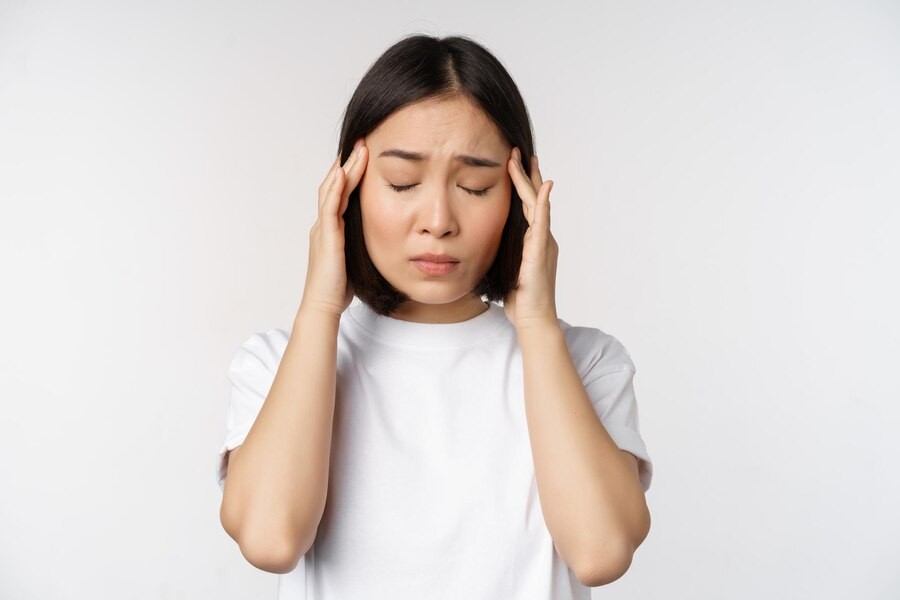As food enters the stomach, it stimulates nerve receptors sensitive to the stomach wall's expansion.
When the stomach is filled with food, nerve receptors send signals to the brain. These signals are interpreted by the hypothalamus, which is responsible for controlling food intake and energy expenditure. The brain then responds by sending signals promoting satisfaction, which makes us feel full. But why do you sometimes feel hungry even after you have eaten?
The most common causes of hunger
Several factors can cause you to feel hungry even after eating, including:
Not eating enough protein
Protein can help you feel fuller for longer than carbohydrates or fat. Protein can cause the release of hormones that signal satiety, such as leptin. Leptin signals to the brain that the body has eaten enough, which can reduce appetite.
In addition to increasing leptin production, proteins can inhibit the production of hunger-stimulating hormones (ghrelin). Both the stomach and the brain produce the ghrelin hormone and typically rises when the stomach is empty.
An adult's daily protein requirement is approximately 0.8 grams per kilogram of body weight. Protein can be obtained from a variety of sources, including both animal (meat, fish, eggs) and plant (tempeh, tofu, whole grains, nuts, and seeds).
Not getting enough sleep
Sleep is essential for maintaining bodily functions and influences the release of appetite-controlling hormones like leptin and ghrelin. When you are sleep-deprived, your body produces more ghrelin, stimulating your appetite. Meanwhile, a lack of sleep can decrease leptin production, which indicates satiety.
Read more: Why Does Lack Of Sleep Cause Weight Gain?
Eating too many refined carbohydrates
Refined carbohydrates, such as white flour and refined sugar, cause a quick blood sugar spike. Refined carbohydrates also lack fiber, so you do not feel full for long.
As blood sugar levels rise rapidly, the body produces the hormone insulin, which transports sugar from the bloodstream to the cells. When blood sugar levels drop rapidly, the body signals that it requires food. This is what causes hunger and an urge to eat more.
Not drinking enough water
Not drinking enough water not only increases your risk of fluid deficiency, but it can also cause you to mistake hunger for thirst. It is also easier to get hungry. Drinking water before meals can help you feel fuller and eat less, which can help you lose weight.
Excessive stress
Stress can cause an increase in the hormone cortisol, which can lead to cravings for fat- and sugar-rich foods. According to research, people under stress eat more calories and choose foods high in sugar and fat.
Read more: Why Do People Get Angry And Grumpy When They Are Hungry?
Eating too fast
Eating too quickly can cause a lack of awareness about the amount consumed. This increases calorie intake due to overeating and an unfelt satiety signal.
Instead, eating slowly and chewing thoroughly allows the body to respond to satiety signals. This can help to prevent overeating and promote healthy weight management.
Eating while doing other tasks
Eating while doing something else, such as watching TV, working on a computer, or using a cell phone, may increase the tendency to overeat or feel extremely hungry. When you eat while doing other things, you may overlook satiety signals. As a result, you may still be hungry and tend to overeat.
Constant hunger, even after eating, may be associated with certain health conditions. If you are unsure of the cause of your persistent hunger, you should get checked out and see a doctor. The doctor can help determine the cause and recommend the appropriate treatment.
You can also access health consultation services by downloading the Ai Care app from the App Store or Play Store.
Looking for more information about nutrition, food, and other diet tips? Click here!
- dr. Yuliana Inosensia
Brianna Elliott, RD (2023). 14 Reasons Why You’re Always Hungry. Available from: https://www.healthline.com/nutrition/14-reasons-always-hungry
Rpse Carr, MSc (2021). How often do I need to eat?. Available from: https://www.healthyfood.com/advice/how-often-do-i-need-to-eat/
Jenna Fletcher (2019). Early satiety: Why do I feel full so quickly?. Available from: https://www.medicalnewstoday.com/articles/327048
Harvard Medical School (2023). How much protein do you need every day?. Available from: https://www.health.harvard.edu/blog/how-much-protein-do-you-need-every-day-201506188096
Better Sleep (2022). How Sleep & Hunger Influence Each Other. Available from: https://www.bettersleep.com/blog/how-sleep-hunger-influence-each-other/
Dr. Liji Thomas, MD (2021). Ghrelin and Leptin. Available from: https://www.news-medical.net/health/Ghrelin-and-Leptin.aspx
Adda Bjarnadottir, MS, RDN (Ice) (2023). Why refined carbs are bad for you. Available from: https://www.healthline.com/nutrition/why-refined-carbs-are-bad
Health Direct (2023). Drinking water and your health. Available from: https://www.healthdirect.gov.au/drinking-water-and-your-health
John Hopkins Medicine. Tips to Manage Stress: Eating. Available from: https://www.hopkinsmedicine.org/health/wellness-and-prevention/tips-to-manage-stress-eating
Marygrace Taylor (2020). 4 Things That Happen When You Eat Too Fast—aand How to Slow Down. Available from: https://www.livestrong.com/article/446323-the-effects-of-eating-too-fast/
Harvard TH Chan (2020). Mindful Eating. Available from: https://www.hsph.harvard.edu/nutritionsource/mindful-eating/












